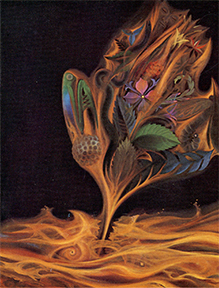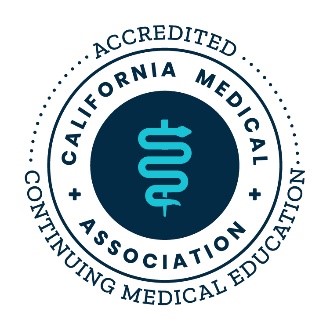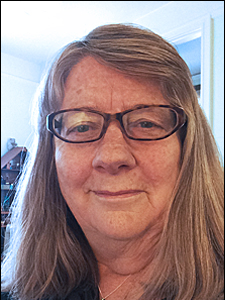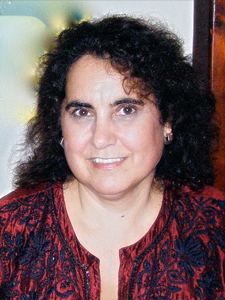
Artist Peter Birkhauser
c. 1958
Analytical Psychology: Historical Context
Monday, October 5, 2020
Mario Starc, MSW, PhD
The history of analytical psychology will be the focus of this section, both its relationship to Freudian theory and its roots in the intellectual culture of the times. Similarities and differences between psychoanalysis and analytical psychology will be explored.
SECTION TWO: Symbolic Attitude
Mondays, October 12, 19, 26, 2020
Yvonne Smith Tarnas, MFT, PhD
To develop the symbolic attitude, these three classes will introduce Jung’s world of the archetypal psyche, using images, film, and case material. Over our time together, we will discuss the symbolic representations in dreams, the clinical narrative, and the transference, including dynamics of synchronicity.
SECTION THREE:
The Complex of Identity: Ego, Ego Development and the Structure of the Psyche
Mondays, November 2, 9, 16, 23, 2020
C. Shoshana Fershtman, JD, PhD
In this course, we explore Jung’s conceptualization of the ego, the Latin word for “I.” Jung wrote in Aion that the ego forms “the centre of the field of consciousness.” In this course, we explore Jung’s view of the ego, ego complex and identity. We explore ego development and its challenges, and the ego’s relationship to other aspects of the psyche, including the shadow, the persona and the Self.
SECTION FOUR:
Complexes, Persona, and Shadow
Mondays, November 30; December 7, 14, 21, 2020
Mario Starc, MSW, PhD
C.G. Jung’s description of the psyche begins with the concepts of “Complexes,” “Persona,” and “Shadow.” To help us understand human behavior, we will develop our understanding of how to apply these concepts to our clinical work through case material and mutual consultation in a group setting.
SECTION FIVE:
Course Integration
Monday, January 4, 2021
Carolyn H. Bray, PhD
Participants will be given an opportunity to evaluate the course to date: clarity of concepts, applicability of practices, incorporating course material into clinical practice.
SECTION SIX:
Approaching the Unconscious: An Analytic Attitude
Mondays, January 11, 25; February 8, 2021
Tina Stromsted, PhD, MFT, LPCC, BC-DMT, RSME/T
Our goal will be to reflect on approaches to accessing the unconscious including the creative arts, the body in analysis and applying embodied methods of inner work toward a range of populations and clinical settings along with the importance of nonverbal, creative dimensions in the healing process.
SECTION SEVEN:
Anima and Animus, Female and Male
Mondays, February 22; March 1, 8,15, 2021
Lauren Cunningham, LCSW and
Christopher Cunningham, PhD
Using Jung’s seminal writing, we will start with a historical account of his concepts of anima and animus, which pertain to the union of opposites and the emergence of the Self. Clinical material will be presented and compared to alchemical images. We will bring our conversation into relationship with modern cultural constructions of gender and sexuality and consider ways to inform our clinical work with contemporary gender theory and cultural struggles.
SECTION EIGHT:
Psychological Types
Mondays, March 22; April 5, 12, 19, 2021
John Beebe, MD
Jung’s psychological types are not types of people, but types of consciousness. In this course, we will learn to differentiate the eight types of consciousness Jung identified, as well as explore what Jung meant by the terms “rational” and “irrational” as well as extroverted and introverted as qualities of consciousness. We will learn to recognize the types of consciousness and see how the types relate to archetypal roles each of us take up.
SECTION NINE:
Archetypes, Myths, and the Personal Psyche
Mondays, April 26; May 3, 10, 17, 2021
Alan Ruskin, PhD
Past the domain of the personal unconscious we encounter the impersonal realm of what Jung termed archetypes, energies in what he conceived of as the collective unconscious. We will explore how archetypes manifest themselves in various cultures’ myths, as well as our individual mythologies, and how during the clinical hour they influence the process of transference.
SECTION TEN:
The Self, Ego-Self Alignment and Estrangement
Mondays, May 24; June 7, 14, 21, 2021
Maria Ellen Chiaia, PhD, MFT
To understand the basis of Jungian depth psychotherapy and dream work, we will focus on the developing relationship between the ego and the Self as posited by Jung’s concept of the “Individuation process.” We will discuss the emergence of ego functioning out of the Self, as well as the Self as a driver and symbol of psychological integration, wholeness.
SECTION ELEVEN:
Final Course Integration and Evaluation
Monday, June 28, 2021
Carolyn H. Bray, PhD
A focus on integrating course concepts and practical applications, a discussion of participants’ clinical development, identification of avenues for further study, and a course evaluation will comprise our final session.
Date: Oct 5, 2020 07:00 PM - 09:15 PM
Fee
CE Hours
Registration closes on Sep 22, 2020 01:00 AM
Activity Type
- Extended Education
Accreditation(s)

Requirements for CE Credit
Registration Closed
Activity Number
JOP2020G2CE Hours
Registration closes on Sep 22, 2020
at 01:00 AM
Registration Closed
Speaker(s)/Author(s)
|
Alan Ruskin, PhD Brief Bio : is a member of the C.G. Jung Institute of San Francisco where he teaches candidates and in public programs. He is in private practice in San Francisco and Mill Valley, CA. He has held faculty positions at U. C. Irvine and Purdue University. His areas of special interest are Dreams, Synchronicity and Dissociation. |
|
|
C. Shoshana Fershtman Brief Bio : CAROLYN SHOSHANA FERSHTMAN, JD, PhD, is a psychologist in private practice in northern California, and an analyst at the C.G. Jung Institute in San Francisco. She has served as core faculty at Sonoma State University’s Masters’ Program in Depth Psychology and at Meridian University’s psychology graduate program. She has spent many years studying Jewish mysticism with teachers and rabbis in the Jewish Renewal and Reconstructing Judaism movements. |
|
|
Carolyn H. Bray, PhD Brief Bio : is the current president of the C.G. Jung Institute of San Francisco. She is an associate editor of Jung Journal: Culture & Psyche, and maintains a practice in San Francisco and Marin, CA working with adult individuals and couples. Her special interests include a Jungian typological approach to understanding human relationships, Hawaiian mythology and shamanism, and working with individuals who have experienced sexual abuse trauma. |
|
|
Christopher Cunningham, PhD Brief Bio : practices in San Francisco, CA. He specializes in men’s issues, and midlife crisis. After attending workshops with Robert Bly and Michael Mead he launched a private bimonthly men’s group that has been meeting for thirty years, which has grown a community that produces an initiation ceremony for adolescents, a yearly backpacking group and a wine making cooperative. |
|
|
John Beebe, MD Brief Bio : is a past president of the C.G. Jung Institute of San Francisco. He is the author of Integrity in Depth and of Energies and Patterns in Psychological Type: The Reservoir of Consciousness. He has written the preface to the recent Routledge Classics edition of Jung’s 1921 book, Psychological Types. His eight function, eight-archetype model of type is widely studied and applied. |
|

|
Lauren Cunningham, MSW Brief Bio : Lauren Cunningham, LCSW, is a member of the International Society for Sandplay Therapy and a Child & Adult analyst at theC.G. Jung Institute, San Francisco. She is founding editor of the Journal of Sandplay Therapy and an Associate Professor at California Institute of Integral Studies. She consults with Parent Participation Nursery Schools in San Francisco and with international training programs. Her analytic practice is in San Francisco. |

|
Maria Ellen Chiaia
Brief Bio : Maria Ellen Chiaia, Ph.D. is an Adult and Child analyst of the C.G. Jung Institute in private practice in Berkeley and Marin. She is a clinical and teaching member of the International Society for Sandplay Therapy. She is co-author of Sandplay in Three Voices: Images, Relationship, the Numinous, has been a key note speaker at a number of conferences and has authored many articles and book chapters. |
|
Mario Starc Brief Bio : is a member of the C.G. Jung Institute of San Francisco, and maintains a practice in Oakland and Tracy, CA. He is on the Supervising Faculty at The Psychotherapy Institute in Berkeley. He has written and taught about Refugee Identity, as well as Ethics and the Ethical Attitude, and has a longstanding interest in cross-cultural issues, religion and memoir. |
|
|
Tina Stromsted, PhD, BM-DMT Brief Bio : Jungian analyst, Board Certified Dance/ Movement therapist, Somatic educator, and author is past co-founder and faculty of the Authentic Movement Institute. She teaches internationally, and at the C.G. Jung Institute in San Francisco, the Depth/Somatics Doctoral program at Pacifica Graduate Institute, and the Marion Woodman Foundation. Her private practice is in San Francisco, CA. |
|
|
Yvonne Smith Tarnas Brief Bio : Yvonne Smith Tarnas, MFT, PHD, is an analyst member of the C.G. Jung Institute of San Francisco and practices in Marin and San Francisco, working with individuals and couples. Her research on synchronicity and therapy explores the healing intersubjective field that can be constellated in the presence of parallel synchronistic occurrences experienced by patient and therapist. |
|
